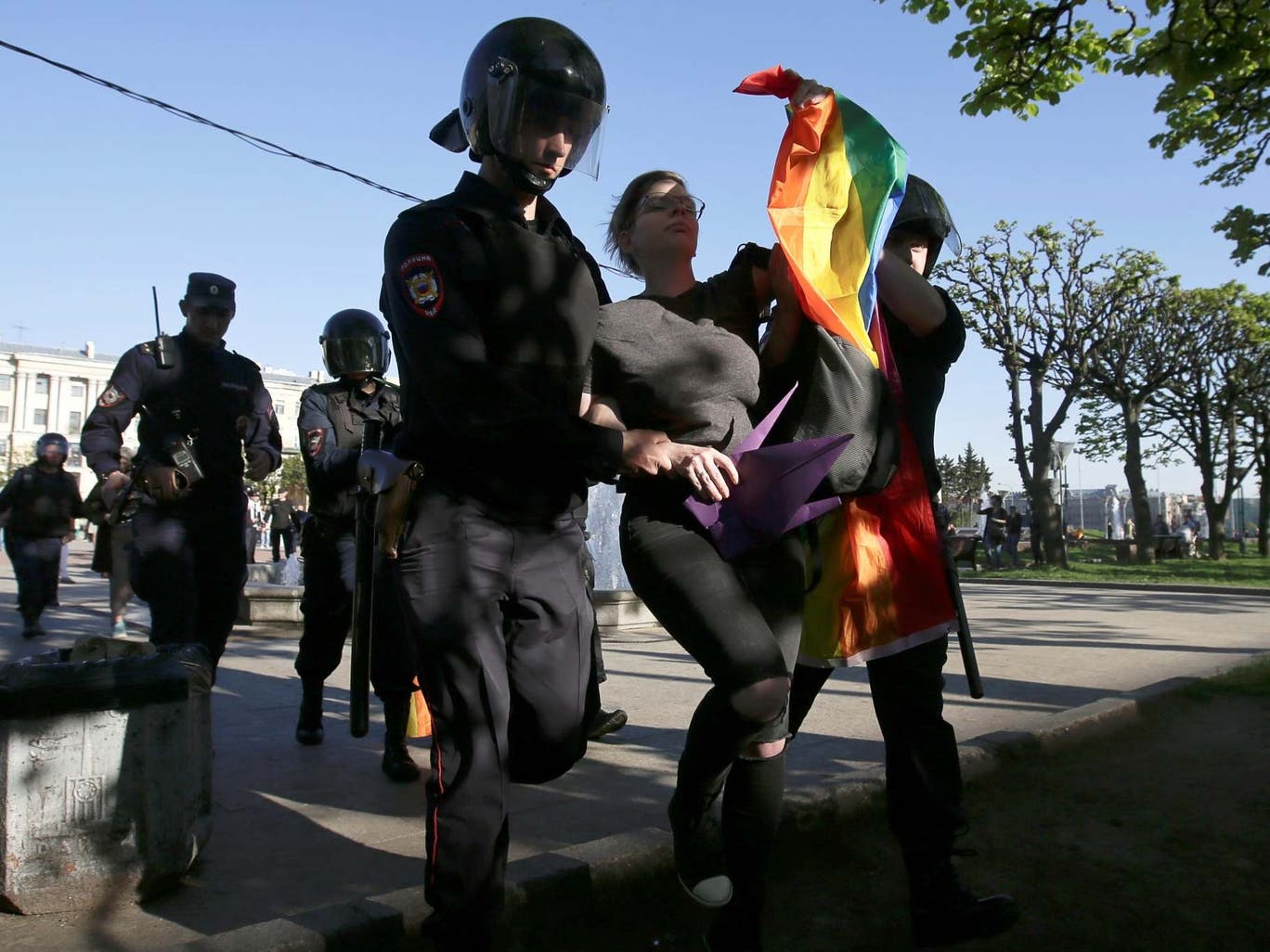Russia opens investigation into music awards over ‘gay propaganda’
State media regulator will examine if children were ‘properly protected from information that is harmful to their health and development’ during the show

Russian authorities have launched an investigation into a televised music awards programme over the appearance of stars in gender-fluid clothing — and a segment that some said appeared to represent a gay marriage ceremony.
The Russian media regulator Roskomnadzor said it had received complaints from viewers who claimed to be shocked by the sight of flamboyant crooner Filipp Kirkorov, who arrived in the studio in a convertible car alongside oiled, topless male models.
Also supposedly causing offence was Danya Milokhin, an it-boy of Russia’s TikTok generation and one of the country’s highest paid social media stars. Mr Milokhin arrived dressed in a half dress, half tuxedo outfit that apparently enraged and befuddled traditionalists.
The show, which was recorded on Friday, appeared to underline the growing chasm between Russia’s liberal younger generation and the Kremlin, with its its growing range of homophobic laws. Last year, new clauses in the constitution defined marriage as a union of man and woman, while in comments given to Kremlin-friendly media, Roskomnadzor suggested organisers may have fallen foul of controversial “gay propaganda” legislation introduced earlier, in 2013.
A spokesman for the state body said it would analyse a recording of the show to see if laws had been broken – and if children had been “properly protected from information that is harmful to their health and development”.
A spokesman for the LGBT Network, Russia’s most prominent NGO working in the area, said the probe demonstrated the “absurdity” of the country’s homophobic legislation.
“The European Court of Human Rights has repeatedly recognised Russian laws as discriminatory,” Tim Bestsvet told The Independent.
“Investigating an awards ceremony because of the attire of its artists is more than sad — and it shows the dangerous way this law can be applied to almost any situation.”
Join our commenting forum
Join thought-provoking conversations, follow other Independent readers and see their replies
5Comments